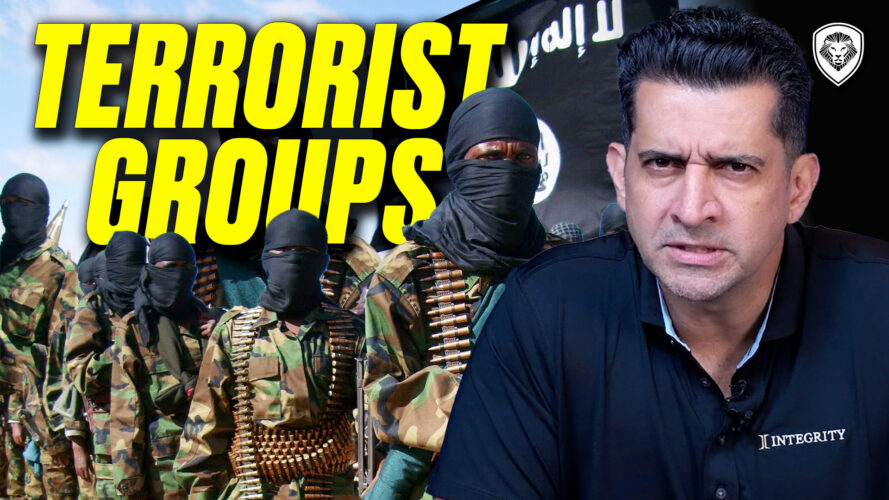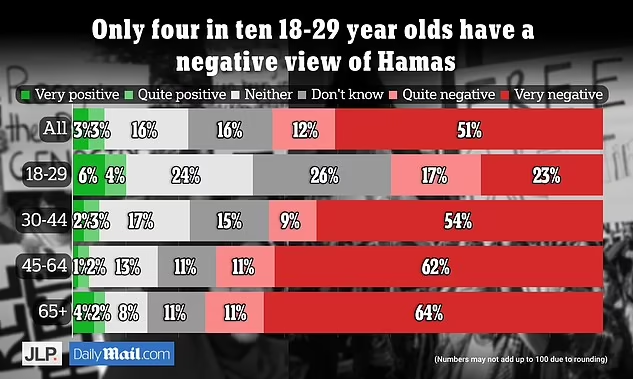Patrick Bet-David explains the history of Middle East Terrorist groups like Hamas, Hezbollah, and ISIS.
A new poll from J.L. Partners and DailyMail found that 10 percent of 18 to 29-year-olds have a positive opinion of Hamas, and only 40 percent had a negative view.
Why is that? Are they getting these opinions from social media, from academia, or is something else at play, such as a demographic shift in the population or a general weakening of the Zionist cause? Many billionaires, at least, believe universities are the culprit and have begun rescinding their donation programs to their alma maters. And what is Hamas anyway?
Hamas
Hamas, an Islamist militant group, began as a spin-off from the Palestinian branch of the Muslim Brotherhood in the late 1980s. Hamas rose to prominence when it was elected into power of the Gaza Strip in 2006, defeating the political party Fatah. Fatah is affiliated with the nationalist and anti-Zionist Palestine Liberation Organization (PLO), which has renounced violence and is comprised of many secular far-left groups.
Hamas was founded by a Palestinian cleric and scholar of Islam named Sheikh Ahmed Yassin. He started the group to serve as the political branch of the Brotherhood in Gaza after the First Intifada, an uprising of Palestinians in the West Bank, Gaza, and Jerusalem in December 1987. The initial goal of Hamas was to counter Palestinian Islamic Jihad (PIJ), a violent organization that risked losing Palestinian support for the Brotherhood.
Learn the benefits of becoming a Valuetainment Member and subscribe today!
In 1988, Hamas released its charter calling for the destruction of Israel and the creation of an Islamic society in Palestine. This was allegedly revised by a so-called moderate 2017 document that accepted the “Green Line” border established before the Six-Day War, but still refused to recognize Israel.
Hamas began suicide bombing in 1993, and eventually moved onto rocket attacks and armed insurgencies. It was formally recognized as a terrorist group by the United States and the European Union in 1997.
Iran is said to provide weapons, training, and about $100 million annually to Hamas, PIJ, and other Palestinian terrorist groups. Hamas has been firing rockets and mortars at Israel since it came into power and has even made incursions into Israel’s territory, killing and kidnapping Israelis.
The recent outbreak of violence between Hamas and Israel is considered the worst conflict between them yet. But its second worst was in 2021, when Hamas began firing rockets into Israel after weeks of tension. The conflict lasted for 11 days with Hamas and PIJ firing more than four thousand rockets, killing ten Israeli citizens and injuring more than three hundred others. Hamas is thought to have received help from Islamic Revolutionary Guard Corps (IRGC) and Lebanon’s Hamas before a ceasefire was brokered by the United States and Egypt.
Hezbollah
“Hezbollah” means “the Party of God.” It is a Lebanese Shiite Muslim political party and militant group, and is such an extensive organization that it is called “a state within a state.” It was founded in the fifteen-year Lebanese Civil War amid great instability. It was influenced to come into being by the rise of the theocratic government in Iran in 1979. Backed by Iran, it is adamantly opposed to Israel and Western powers influencing the Middle East.
Hezbollah has carried out many terrorist attacks across the globe, including the 1994 car bombings of a Jewish community center in Argentina that killed 85 people and the bombings of the Israeli Embassy in London, earning it the “terrorist group” designation by the United States and other countries.
Even after Israel withdrew from Lebanon in 2000, it continued to have problems with Hezbollah, which reiterated its goal to destroy the Israeli state in a 2009 manifesto. The two powers erupted into a month-long war in 2006, with Hezbollah launching more than a thousand rockets.
Hamas is thought to have roughly 40,000 soldiers. Hezbollah has 150,000 soldiers. Israel, meanwhile, has 400,000 soldiers. Hezbollah has also been said to possess “a larger arsenal of artillery than most nations enjoy” and is considered “the world’s most heavily armed non-state actor.” Critics say Hezbollah’s existence violates UN Security Council Resolution 1559, passed in 2004, which demanded Lebanese militants to disarm and disband.
Watch the full video to see Pat’s breakdown of ISIS, the Iranian revolution, and the recent developments of the Israel-Hamas War:



















Add comment